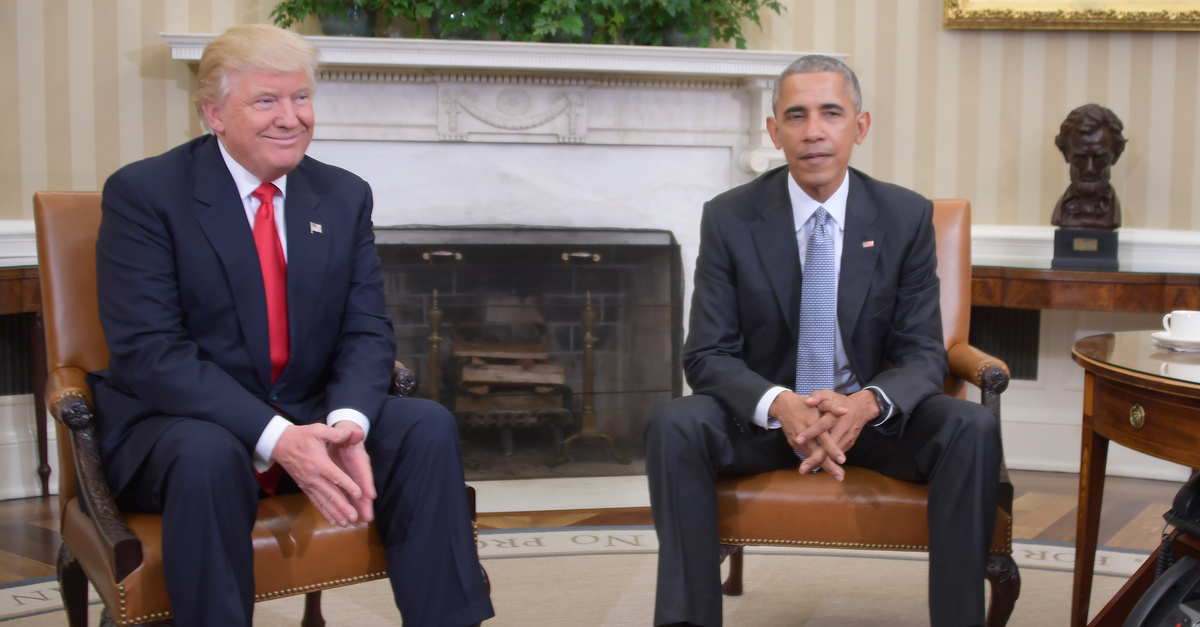
Now that our long and fruitless national fixation with foreign election meddling has more or less run its course–for now–let’s look back at a series of events that essentially functioned as a microcosm of how the various Russian and Ukrainian storylines have all played out.
This hindsight understanding of the 2016 presidential campaign comes courtesy of a recently released Senate Intelligence Committee report on Russian “Active Measures” used to influence Americans during that long and ugly election campaign—and specifically a 54-page volume detailing the U.S. government’s lackluster response.
Rewind to the fall of 2016, Barack Obama was still president and Joe Biden was just some goofy guy in memes. Then-candidate Donald Trump had been entirely written off by the political and media establishment as Hillary Clinton prepared for a swift victory.
Trump, in character, was lashing out and accusing the Obama administration of putting its fingers on the scales for Clinton. That never happened, of course, but that’s never stopped Trump before or since. The media largely laughed at Trump’s self-serving claims—but a different audience was paying rapt attention.
Meanwhile, in the White House and among some portions of the intelligence community, the Obama administration had a choice to make: Be honest and take serious action about Russian electoral interference? Or kowtow to Trump’s wild and inaccurate claims about the general election being “rigged” in Clinton’s favor? Obama et al. chose the latter.
“Administration officials told the Committee that they did not want the response to Russian election interference to be seen as a politically motivated action in an already highly political environment,” the Senate report notes. “They were concerned that warning the public about Russian efforts would be interpreted as the White House siding with one candidate. They pointed out in interviews that candidate Trump was, at the time, publicly saying that the election would be ‘rigged.’”
The report outlines the following incidents that gave Obama’s people pause and jitters:
On October 16, 2016, then-candidate Donald Trump tweeted, “The election is absolutely being rigged by the dishonest and distorted media pushing Crooked Hillary — but also at many polling places — SAD.” The next day, followed up with a tweet stating, “Of course there is large scale voter fraud happening on and before election day,” and further reiterated these claims at a campaign rally in Green Bay, Wisconsin that evening, stating, “[r]emember, we’re competing in a rigged election. This is a rigged election process.”
The report makes clear that the dual—and apparently dueling—concerns reached into highest levels of the Obama White House.
“[John] Kerry told the Committee that there was extensive discussion in the White House Situation Room, particularly among those who had previously run for office, about how to keep politics out of statements made by the White House, especially since President Obama was actively campaigning for candidate Clinton,” the document explains. “Kerry also noted that candidate Trump was making public assertions about the election being rigged.”
In fact, it appears that Trump’s repetitive, conspiratorial and baseless claims got so far into the collective heads of the Obama administration that policy itself was sacrificed to keep up appearances of bipartisan comity.
Again, the Senate report:
Avril Haines, the Deputy Assistant to the President for National Security Affairs, recalled that administration officials quickly discarded any thought of legislation to amplify economic sanctions against Russia, and focused on options that could be pursued by executive order “[b]ecause we didn’t think we would get bipartisan support for legislation, and we didn’t think that was going to be doable in the time period that we had.
Also on the chopping block? Apparently a thorough law enforcement response or any pressure on law enforcement to make haste, because, the report notes, “the [National Security Council] recognized the [intelligence community] and law enforcement community’s professional aversion to partisan matters.” Whoops.
[image via JIM WATSON/AFP/Getty Images]